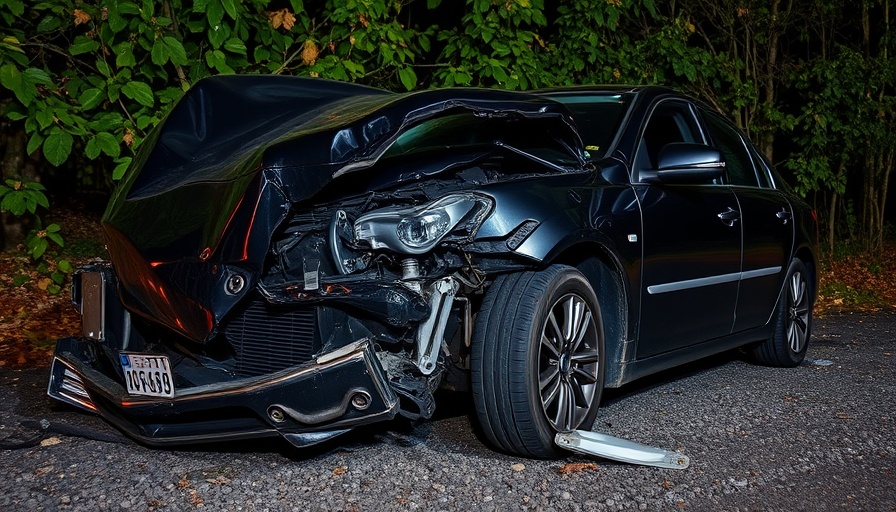
Understanding the Tesla Autopilot Case: What Happened?
Tesla is currently embroiled in a high-profile legal battle following the judgment of a Florida jury that held the electric vehicle manufacturer partly responsible for a tragic 2019 crash that claimed the life of 22-year-old Naibel Benavides Leon. The jury awarded a staggering $242.5 million, with the verdict indicating that Tesla's famous Autopilot feature played a significant role in the accident. This situation has pulled the company into a whirlwind of controversy, sparking debates about accountability in vehicle technology and the implications of such verdicts on innovation.
Tesla's Defense: Legal and Ethical Arguments
In a desperate bid to overturn or reduce the jury’s verdict, Tesla’s legal team has contended that the ruling contradicts fundamental concepts of Florida law and due process. The company argues that the true culpability lies with George McGee, the Tesla driver whose reckless actions, including distracted driving, allegedly led to the fatal collision. Thus, they assert that holding Tesla liable for this incident undermines the notion of personal responsibility among drivers.
Furthermore, Tesla's lawyers argue that the judgment poses a chilling effect on innovation. If manufacturers are penalized for accidents involving advanced safety features, it might discourage the development of groundbreaking technologies that could improve road safety. They fear that heavy liabilities will tempt juries to punish companies instead of focusing on the actions of negligent drivers, leading to a less safe driving environment overall.
The Verdict: What It Means for the Future of Autonomy
The $242.5 million ruling has raised critical questions about the future of autonomous driving technology. As vehicles become increasingly sophisticated, the lines of accountability between manufacturers and drivers blur. Tesla's case indeed serves as a potential precedent for how future court decisions may unfold regarding driver-assistance technologies. With the jury determining that Tesla was 33% liable for the crash, it may encourage more lawsuits against automotive companies that employ similar technologies.
Public Perception: Balancing Innovation and Safety
The case highlights the public's mixed feelings about autonomous driving. Many embrace the safety features of electric vehicles, while others fear the consequences of relying too heavily on technology. As public trust in autonomous systems fluctuates, companies must navigate these perceptions delicately. The incident may lead consumers to reconsider the functionalities they expect from modern vehicles and spark conversations regarding safety standards in the auto industry.
Compensatory Damages: Understanding Legal Financial Penalties
The Florida jury’s decision included $129 million in compensatory damages and $200 million in punitive damages, aiming to address not only the emotional suffering experienced by the victims' families but also to punish Tesla for its perceived negligence. While punitive damages are meant to deter similar future behavior, the large monetary award may lead to broader implications in other cases involving technology manufacturers and public safety.
Future Trends: Legal Implications for Car Manufacturers
Looking ahead, we may witness a shift in how automotive companies approach the development and marketing of advanced driving technologies. The legal landscape might undergo metamorphosis, resulting in tighter regulations as lawmakers respond to emerging risks associated with automated systems. Companies could instigate more rigorous testing standards and liability insurance practices to protect against similar lawsuits.
Key Takeaways: Lessons for Entrepreneurs and Automotive Leaders
This case serves as a reminder for all business leaders, especially in the technology sector, about the importance of vigilance in product safety and accountability. Entrepreneurs must understand that innovation comes with responsibility, and they should anticipate potential legality issues before launching new technologies. It underscores a fundamental principle—business must proactively respond to both consumer and regulatory expectations.
Your Turn: Share Your Insights
As this case unfolds, what are your thoughts on the implications for the automotive industry? How do you feel about the balance between technological advancement and accountability in this context? Let's engage in these discussions and see how this verdict shapes future business strategies.
In summary, the Tesla Autopilot crash case reiterates the challenges of merging technology with human factors in the automotive realm. Stakeholders must address product liability while fostering innovation for the future of transportation.
 Add Row
Add Row  Add
Add 




Write A Comment